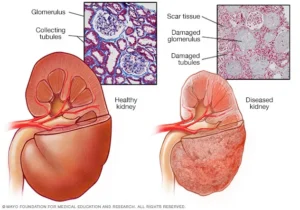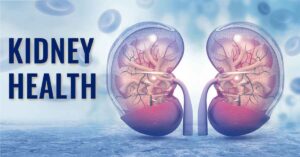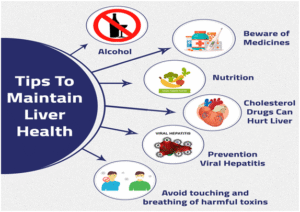Liver-Friendly Lifestyle Habits: Exercise, Sleep, and Stress Management
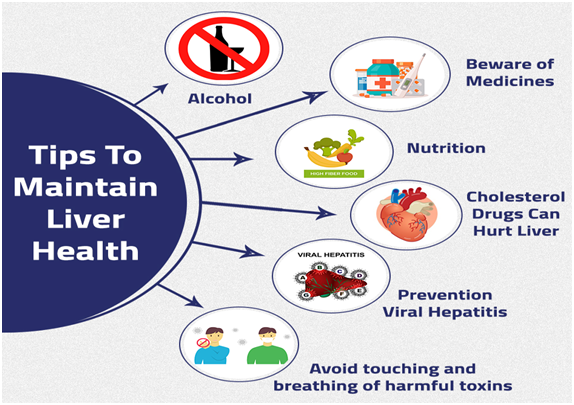
Your liver supports digestion, metabolism, and detoxification, acting as the body’s central processing unit for nutrients and toxins. However, when poor lifestyle habits like inactivity, irregular sleep, or chronic stress take over, fat begins to accumulate and inflammation rises, weakening its function over time. By maintaining regular exercise, prioritizing deep, consistent sleep, and managing daily stress effectively, you can reduce liver fat, restore hormonal balance, and help your liver work at its full efficiency again supporting better energy, metabolism, and overall health.
Key Takeaways for Liver Friendly Lifestyle
- Exercise improves liver enzyme levels and burns stored fat without requiring major weight loss.
- Consistent 7 to 9 hours of sleep enables nightly liver repair and hormonal balance.
- Managing stress lowers cortisol and prevents inflammation-driven fat buildup.
- Resistance training boosts metabolism and strengthens insulin response.
- Poor sleep and chronic tension weaken detox and increase liver strain.
- Combining steady movement, rest, and relaxation protects long-term liver health.
Why Lifestyle Matters for Liver Health
Your lifestyle habits act as daily signals to your liver. When you move regularly, sleep deeply, and manage tension, the liver receives a “green light” to heal and clear stored fat. But when stress, inactivity, or poor rest dominate, fat and inflammation start to build up silently.
Liver health is not just about avoiding alcohol or eating clean it’s about managing energy, hormones, and recovery. These three areas are interconnected, and improving one strengthens the others.
- Exercise improves blood flow, clears fat deposits, and enhances insulin sensitivity.
- Sleep regulates the body’s repair cycles and reduces liver stress.
- Stress management calms hormonal imbalances that trigger fat storage.
Exercise: The Core Intervention

Exercise is one of the most powerful ways to protect and repair your liver. It changes how your body handles fat, improves blood sugar control, and reduces inflammation all without requiring rapid weight loss. When done consistently, even small increases in physical activity improve liver enzyme levels and overall energy. The key is to focus on sustainability, not intensity.
How Exercise Helps the Liver
Every workout sends helpful chemical signals to your liver that reduce stress and improve metabolism.
- Activates fat-burning enzymes that decrease liver fat stores.
- Boosts insulin sensitivity, preventing fat from forming inside liver cells.
- Improves oxygen delivery and nutrient circulation to support cell repair.
- Reduces inflammation and oxidative stress that damage liver tissue.
Weekly Activity Target
Think of this as your prescription for liver wellness. You don’t need extreme workouts—just the right mix of movement spread throughout your week.
- Aim for 150 to 300 minutes of moderate activity like brisk walking or cycling.
- Or do 75 to 150 minutes of vigorous activity like running or swimming.
- Add 2 to 3 strength sessions weekly to build muscle and improve long-term metabolism.
Aerobic Options That Work
The best workout is the one you enjoy enough to keep doing. Choose activities that fit smoothly into your daily routine.
- Brisk walking: Gentle, accessible, and highly effective for liver fat reduction.
- Cycling: Builds stamina and supports lower-body strength.
- Swimming: Works the full body without joint strain.
- Dancing or aerobics: Combines movement and music for mood elevation.
HIIT vs. Moderate Exercise
High-Intensity Interval Training (HIIT) delivers fast results in less time, but it’s not necessary for everyone. It alternates short bursts of effort with rest, pushing your body to adapt quickly.
- Try HIIT 1–2 times a week if you’re already active and comfortable.
- On other days, stick with moderate, steady movement.
- Avoid doing HIIT back-to-back to allow full recovery.
Resistance Training: The Missing Piece
Strength training plays a quiet but powerful role. It improves blood sugar control, increases lean muscle mass, and keeps your metabolism active even at rest.
You can start small and make progress safely:
- Begin with body-weight movements like squats, lunges, and push-ups.
- Add resistance bands or light dumbbells as you get stronger.
- Focus on large muscle groups legs, back, chest, and core.
- Rest at least one day between strength sessions.
Safety Tips
Exercise should energize you, not drain you. Always pay attention to your body’s feedback.
- Consult your doctor before intense training if you have liver or heart issues.
- Avoid heavy workouts when you’re ill or fatigued.
- For advanced liver disease, stick with low to moderate intensity.
Sleep: The Rate Limiter

Sleep is your liver’s nightly repair window. During rest, the liver processes toxins, balances blood sugar, and supports fat metabolism. When sleep is irregular or insufficient, this natural repair cycle breaks down.
A consistent, deep sleep routine acts like a daily reset button for the entire metabolic system. Without it, even the best diet and exercise plan will fall short.
How Poor Sleep Damages the Liver
Poor sleep doesn’t just make you tired it rewires how your body stores and uses energy.
- Increases insulin resistance, raising fat buildup in the liver.
- Triggers higher cortisol levels and chronic inflammation.
- Alters hunger hormones, leading to overeating and cravings.
- Disrupts detoxification and slows nighttime recovery.
The Ideal Sleep Routine
Creating strong sleep habits gives your liver the environment it needs to restore balance each night.
- Sleep 7 to 9 hours consistently every night.
- Maintain a fixed bedtime and wake-up time, even on weekends.
- Avoid caffeine after 3 p.m. and limit alcohol in the evening.
- Get morning sunlight exposure to regulate your internal clock.
Sleep Apnea: The Hidden Threat
Sleep apnea interrupts breathing and oxygen delivery to the body, placing major stress on the liver. It’s common but often goes unnoticed.
Watch for warning signs such as:
- Loud snoring, gasping, or choking at night.
- Persistent daytime fatigue or morning headaches.
- High blood pressure or obesity.
Sleep Hygiene That Works
Better sleep isn’t about luck it’s about environment and routine.
- Keep your room dark, cool, and quiet for optimal rest.
- Create a 30-minute wind-down routine read, stretch, or meditate.
- Avoid screens and bright lights before bedtime.
- Reserve your bed only for sleep, not scrolling or work.
When to Seek Help
If you’ve tried improving your habits but still struggle to sleep, it’s time for professional support. Chronic insomnia or untreated apnea can worsen metabolic and liver issues over time.
Stress Management: Lower the Hepatic Load
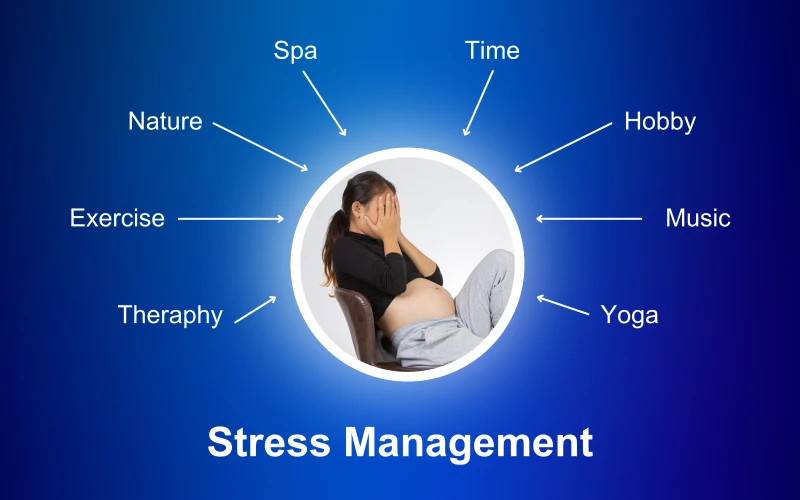
Chronic stress may feel emotional, but it creates real, measurable strain on the liver. High cortisol levels, poor coping habits, and tension-related fatigue all interfere with metabolism and recovery. Managing stress is a direct way to reduce the biochemical load your liver faces daily. It lowers inflammation, balances hormones, and helps you make better lifestyle choices.
How Stress Affects the Liver
When stress persists, your body’s protective systems stay activated longer than needed. This creates a constant background drain on your energy and health.
- Cortisol sends fat to the liver instead of burning it for fuel.
- Inflammation rises, slowing tissue repair.
- Poor sleep and emotional eating become more frequent.
- Detoxification and immune function are reduced.
Practical Mind-Body Strategies
Even 10 minutes a day of relaxation practice can bring measurable changes to your physiology.
- Mindfulness meditation lowers heart rate and calms racing thoughts.
- Paced breathing (inhale 4 seconds, exhale 6) resets the nervous system.
- Yoga and tai chi blend movement, breath, and focus.
- Cognitive-behavioral techniques build emotional resilience.
Everyday Micro-Habits
Simple habits make stress management fit easily into your day.
- Pause for deep breaths before switching tasks.
- Write three things you’re grateful for each evening.
- Take 5–10 minute outdoor walks during daylight hours.
- Schedule short phone-free periods to reduce mental clutter.
Building Supportive Environments
Stress is easier to manage when your surroundings support it. Structure your environment to work for you, not against you.
- Maintain strong social support talk about challenges early.
- Set boundaries to protect rest and personal time.
- Include restorative activities like reading, music, or hobbies.
- Track your stress weekly on a 1 to 10 scale to spot trends early.
Diet and Lifestyle Synergy
Your diet works hand-in-hand with exercise, sleep, and stress control to keep the liver healthy. What you eat determines how much strain your liver faces and how efficiently it can process fat and toxins.
Focus on foods that nourish and protect rather than overload the liver:
- Eat fiber-rich fruits, vegetables, legumes, and whole grains.
- Choose healthy fats like olive oil, nuts, seeds, and fish.
- Limit added sugars, refined carbs, and processed foods.
- Stay hydrated and minimize alcohol and sugary drinks.
Tracking and Maintaining Healthy Habits
Small, consistent monitoring keeps your progress visible and motivation high.
- Record your exercise minutes, sleep hours, and stress level daily.
- Use simple trackers or notes to see patterns over time.
- Review every 2–3 weeks and make small, realistic adjustments.
Putting It All Together: A 7-Day Liver Plan
Applying all three habits at once can seem challenging, but it’s simpler than it looks. This 7-day template helps you integrate exercise, sleep, and stress balance naturally into your week.
| Day | Movement | Sleep Goal | Stress Focus |
| Monday | 30 min brisk walk | 7 h 45 min | Evening deep breathing |
| Tuesday | Strength training | same | Gratitude journaling |
| Wednesday | 25 min cycling | same | 10-min sunlight break |
| Thursday | HIIT 20 min | same | One-minute reset breaks |
| Friday | Strength circuit | same | Guided meditation |
| Saturday | 45-min long walk | same | Social activity |
| Sunday | Yoga or stretching | same | Reflective journaling |
When to See a Doctor
Even the best lifestyle plan needs medical guidance at times. Listen to your body and act early when something feels off.
- Liver enzyme levels remain high for over three months.
- Symptoms like jaundice, abdominal swelling, or severe fatigue appear.
- You have diabetes, obesity, or a history of alcohol use.
- Pain, rapid weight loss, or confusion occur.
Conclusion
Your liver is remarkably adaptive, but it needs consistent care through daily choices. Regular physical activity burns excess fat, strengthens insulin sensitivity, and improves energy balance. Quality sleep allows the liver to regenerate, manage hormones, and process toxins effectively, while stress management reduces cortisol and inflammation that often trigger fat buildup. Together, these three habits exercise, sleep, and stress control form the foundation of long-term liver wellness. No supplement or diet can match the benefits of a stable, active lifestyle. By committing to steady movement, restful nights, and a calm mind, you give your liver the space to heal, perform efficiently, and support every other system in your body. Small, consistent actions truly make the difference between strain and strength.
FAQs
- How much exercise lowers liver fat if I don’t lose weight?
Doing 150–300 minutes of moderate cardio plus 2–3 strength workouts weekly can reduce liver fat by up to 30%. Regular movement improves how your liver processes fat even without shedding pounds. - Is HIIT better than walking for the liver?
Both are effective for liver health. HIIT delivers quicker results in less time, while walking is gentler, safer, and easier to maintain long-term. - Do short walks after meals help the liver?
Yes, taking a 10-minute walk after meals helps lower blood sugar spikes and prevents excess fat from storing in your liver. This small habit adds up over time. - How much sleep should I get for optimal liver repair?
Aim for 7–9 hours of quality sleep each night. Deep, consistent rest allows your liver to repair and detoxify efficiently. - Can naps make up for poor nighttime sleep?
Short naps can boost energy but don’t replace restorative nighttime sleep. Your liver performs most of its healing and detox work during deep sleep cycles. - I work rotating shifts. How do I protect my liver?
Anchor one main sleep block, use blackout curtains, and eat meals during daylight when possible. Keeping a steady rhythm helps your liver adapt and recover. - Which stress technique improves liver health fastest?
Mindful breathing and meditation can lower stress hormones within weeks. Practicing daily helps reduce inflammation and supports liver balance. - When should I recheck my liver tests?
Recheck your liver enzymes every 8–12 weeks during lifestyle changes. Regular monitoring helps track progress and guides medical advice. - Can I still exercise if my liver enzymes are high?
Yes, gentle exercise is usually safe and beneficial with your doctor’s approval. Activities like walking or yoga help improve circulation and recovery. - Do fitness trackers help with liver wellness?
Yes, they keep you accountable by tracking steps, sleep, and heart rate. However, only medical tests can confirm your actual liver improvement.
Reference
- American Liver Foundation – Exercise and Liver Health: https://liverfoundation.org/for-patients/about-the-liver/exercise-and-liver-health/
- Mayo Clinic – Healthy Sleep Tips: https://www.mayoclinic.org/healthy-lifestyle/adult-health/in-depth/sleep/art-20048379
- Cleveland Clinic – Stress Management and Liver Health: https://health.clevelandclinic.org/7-tips-for-reducing-stress/
- NIDDK – Nonalcoholic Fatty Liver Disease & Lifestyle: https://www.niddk.nih.gov/health-information/liver-disease/nafld-nash
- Harvard Health – Exercise and Liver Fat Reduction: https://www.health.harvard.edu/diseases-and-conditions/exercise-can-help-reduce-fatty-liver
Dr. Amiah Rainey researches diet–disease relationships with expertise in vitamins, minerals, and biomarker methods. She earned a PhD from Harvard T.H. Chan School of Public Health (2019) and completed a postdoctoral fellowship at the NIH/NIDDK. With ~20 peer-reviewed publications (example) and experience on NIH-funded cohort studies, Amiah translates complex evidence into practical guidance. She advises on study design, evidence grading, and data transparency. Profiles: ORCID, Google Scholar; list affiliations and any disclosures.





